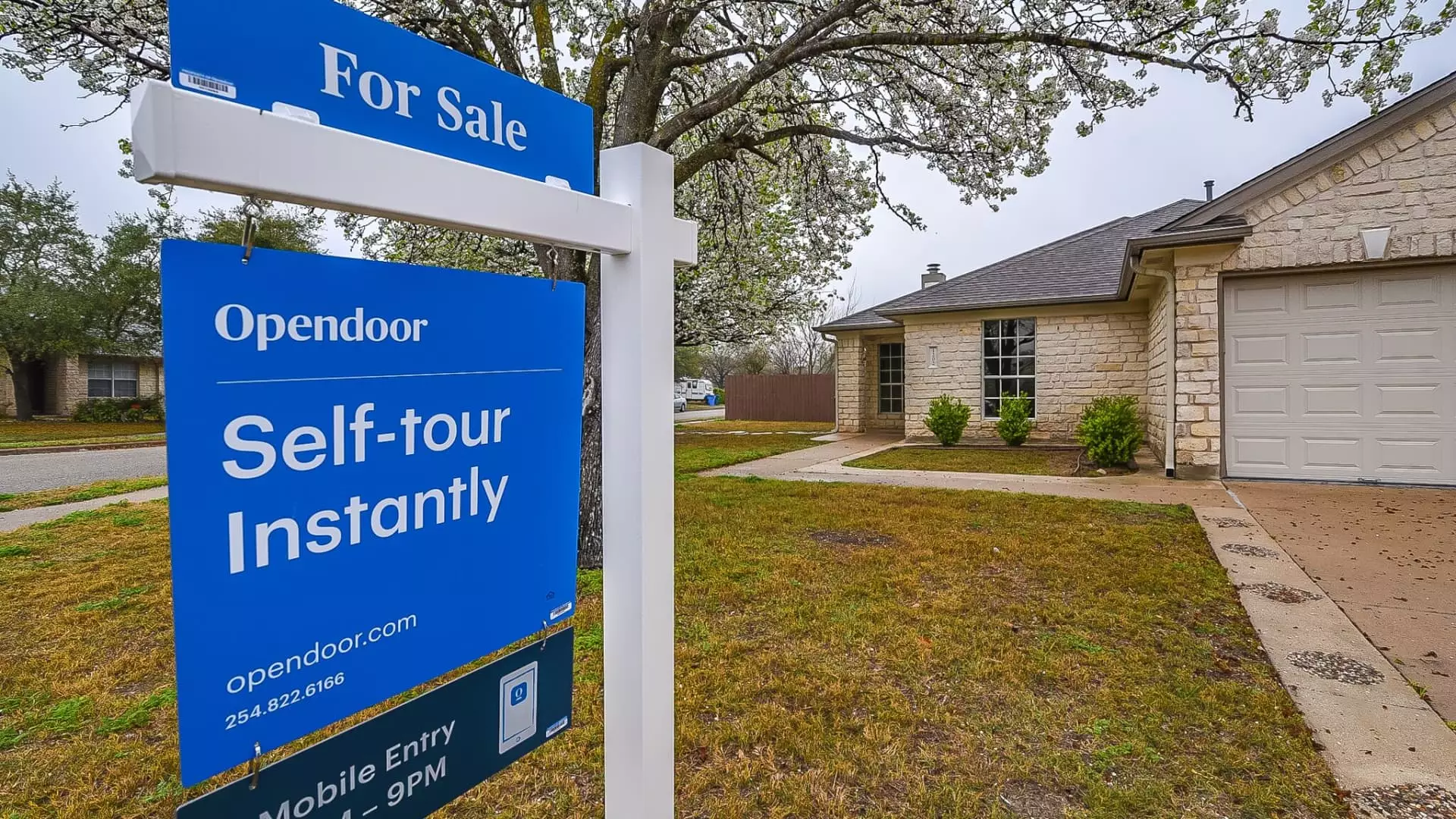Opendoor’s recent stock surge signals more than just fleeting investor enthusiasm; it underscores a complex juxtaposition between optimism and stark market realities. Once a darling of the tech-driven real estate revolution, the company faced a brutal plunge as interest rates soared, home sales slowed, and investor confidence waned. The fact that shares soared nearly fivefold since July seems to suggest that the market is betting heavily on a redemption narrative — one where Opendoor leverages innovation to rekindle growth. Yet, an honest, critical analysis reveals that this optimism might be overly optimistic, perhaps even reckless, given the firm’s recent financial trajectory and strategic repositioning.
From a valuation perspective, the company still embodies a risky proposition. After hitting a low of just 51 cents in June, the stock’s recent rally—even as volatile as it is—serves as a stark reminder that market sentiment can easily shift. Hedge fund managers like Eric Jackson, who see substantial upside, are gambling on a future where Opendoor reclaims its footing through increased market share and operational restructuring. However, this belief relies heavily on assumptions that haven’t yet materialized, notably the return to revenue growth and normalized profit margins amid a still challenging housing market environment.
The Market’s Turmoil and the Company’s Response
The core challenge for Opendoor lies in its fundamental business model: using technology to buy and sell homes quickly and profitably. The pandemic-era boom fueled lofty expectations, but the subsequent climb in interest rates created a perfect storm that devastated home-buying demand. As borrowing costs skyrocketed, fewer consumers ventured into the housing market, dragging revenue down by approximately 66% from the previous year. This decline highlights the vulnerability of Opendoor’s revenue streams to macroeconomic shifts.
Even amidst the chaos, the company attempted to realign itself. Recent financials show a glimmer of improvement — a narrowed net loss and a slight revenue uptick in the second quarter. Still, these figures are far from reassuring. The projected third-quarter revenues of $800–$875 million would entail a steep 36% or more decline from last year. The company’s plan to acquire far fewer homes — just 1,200 compared to previous quarters — signals a cautious attitude amidst deteriorating market conditions. The decision to cut back on marketing spending further emphasizes the strategic shift away from aggressive growth toward preservation and operational efficiency.
Still, these measures are more reactive than proactive. The housing market’s downturn, driven by sustained high mortgage rates and record-low buyer activity, remains a significant obstacle. Yet, Opendoor’s leadership seems to view this contraction as an opportunity to pivot into less capital-intensive segments, specifically a referral-based model. Whether this strategic shift will generate meaningful upside is uncertain. It’s a long-term gamble that emphasizes adaptability but also raises questions about whether the company can truly pivot its core operations successfully.
Optimism vs. Reality: A Delicate Balance
The recent surge in Opendoor’s stock, fueled by speculation and high-profile backers like Eric Jackson, appears to ignore the fundamental challenges the company faces. Jackson’s bullish outlook, predicting shares could reach $82, hinges on the assumption that revenue growth and market share expansion will eventually lead to profitability. However, such a scenario demands a considerable leap of faith. The company still grapples with slim margins, a collapsing housing market, and the persistent pressure of macroeconomic headwinds.
Moreover, the market’s reaction—volatile and driven by recent news, investor chatter, and bold predictions—might be a mirage. It’s easy to get caught up in the excitement of a sharp rally, but that enthusiasm can obscure the underlying realities of a business still in transition. The company’s cautious forecast for future acquisition volumes and expense reduction suggests that resilience will be tested in the coming months.
Yet, there is one noteworthy aspect: the company’s willingness to be transparent about its strategic shifts. CEO Carrie Wheeler’s acknowledgment of the “most important strategic shift in our history” signals a recognition that previous growth paradigms are no longer sustainable. Opendoor’s attempt to diversify its revenue streams beyond traditional iBuying offers a glimmer of hope, but it remains to be seen whether this approach will fix the deeper structural issues threatening its survival.
The saga of Opendoor exemplifies the high-stakes nature of transformational disruption in real estate. While the recent market enthusiasm is tempting to interpret as a sign of imminent turnaround, the underlying fundamentals suggest caution. The company’s strategic pivot, bold yet uncertain, reflects a willingness to adapt but also reveals vulnerability. Investors must decide whether they believe in the company’s long-term vision or view the current rally as a speculative gamble more than a genuine turnaround. For Opendoor, the coming months will be critical in determining if it can translate optimism into sustainable growth or if it will remain caught in the whirlwinds of market volatility and operational hurdles.

